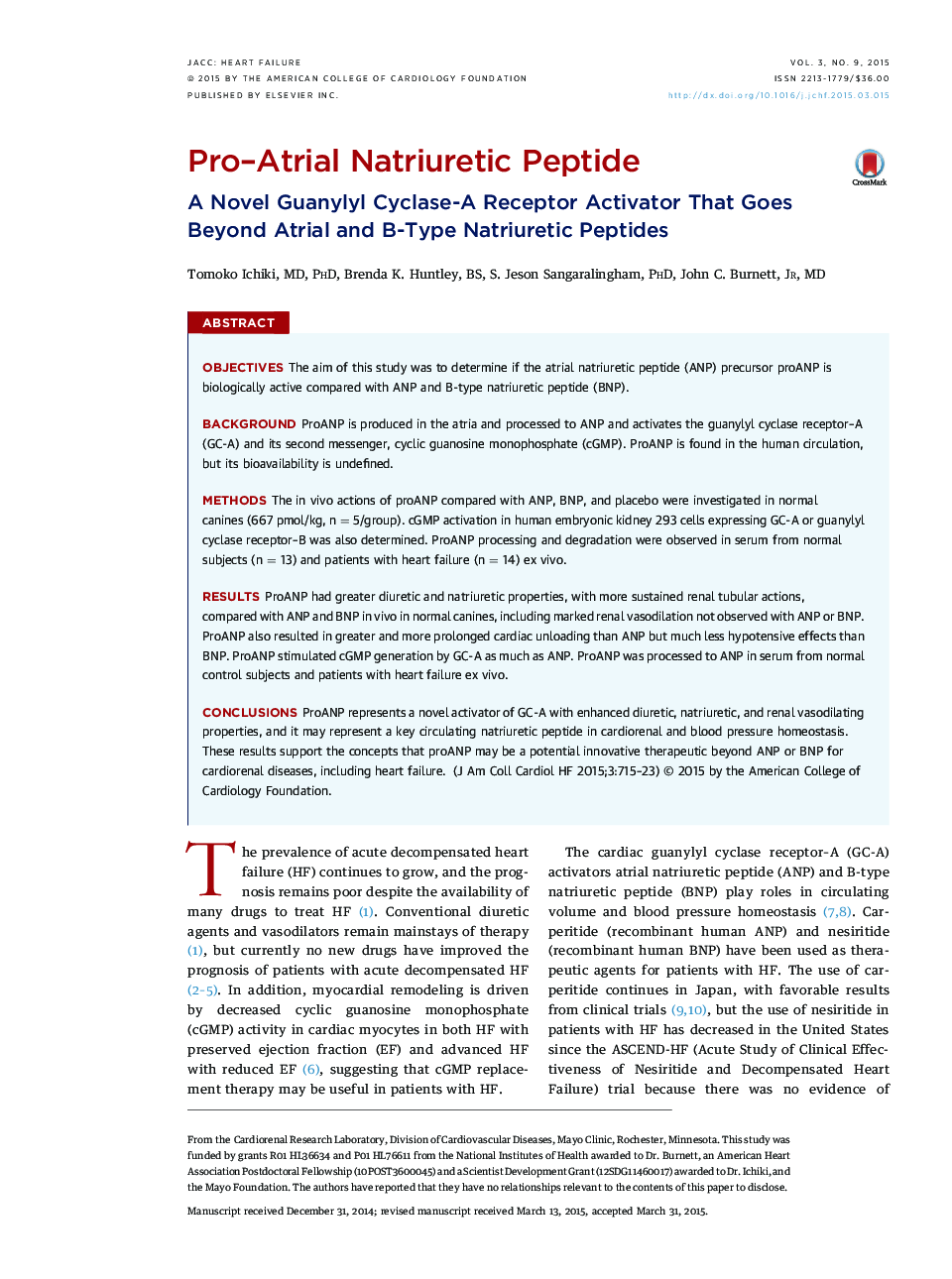| Article ID | Journal | Published Year | Pages | File Type |
|---|---|---|---|---|
| 2942471 | JACC: Heart Failure | 2015 | 9 Pages |
ObjectivesThe aim of this study was to determine if the atrial natriuretic peptide (ANP) precursor proANP is biologically active compared with ANP and B-type natriuretic peptide (BNP).BackgroundProANP is produced in the atria and processed to ANP and activates the guanylyl cyclase receptor–A (GC-A) and its second messenger, cyclic guanosine monophosphate (cGMP). ProANP is found in the human circulation, but its bioavailability is undefined.MethodsThe in vivo actions of proANP compared with ANP, BNP, and placebo were investigated in normal canines (667 pmol/kg, n = 5/group). cGMP activation in human embryonic kidney 293 cells expressing GC-A or guanylyl cyclase receptor–B was also determined. ProANP processing and degradation were observed in serum from normal subjects (n = 13) and patients with heart failure (n = 14) ex vivo.ResultsProANP had greater diuretic and natriuretic properties, with more sustained renal tubular actions, compared with ANP and BNP in vivo in normal canines, including marked renal vasodilation not observed with ANP or BNP. ProANP also resulted in greater and more prolonged cardiac unloading than ANP but much less hypotensive effects than BNP. ProANP stimulated cGMP generation by GC-A as much as ANP. ProANP was processed to ANP in serum from normal control subjects and patients with heart failure ex vivo.ConclusionsProANP represents a novel activator of GC-A with enhanced diuretic, natriuretic, and renal vasodilating properties, and it may represent a key circulating natriuretic peptide in cardiorenal and blood pressure homeostasis. These results support the concepts that proANP may be a potential innovative therapeutic beyond ANP or BNP for cardiorenal diseases, including heart failure.
